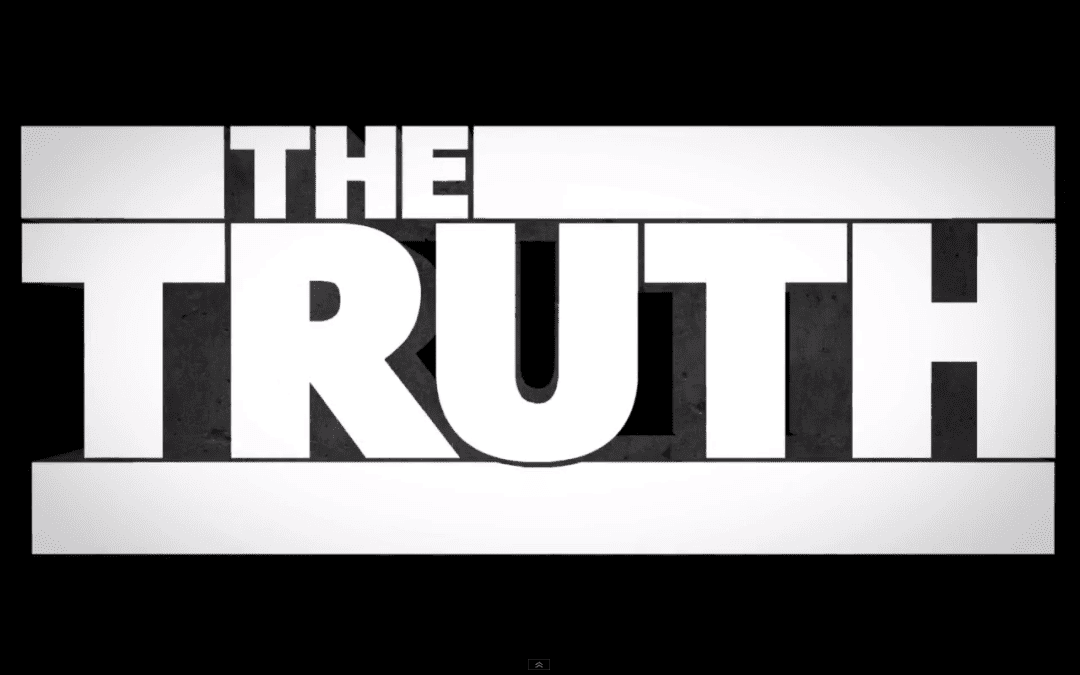Christian Apologetics is based on the existence of truth, and Christianity’s correspondence to reality. This article from the Baker Encyclopedia of Apologetics will help you better understand what truth is. This is part one of three.
What Truth Is. Correspondence with Reality. Now that the inadequate views of the nature of truth have been examined, it remains to state an adequate view. Truth is what corresponds to its referent. Truth about reality is what corresponds to the way things really are. Truth is “telling it like it is.” This correspondence applies to abstract realities as well as actual ones. There are mathematical truths. There are also truths about ideas. In each case there is a reality, and truth accurately expresses it.
Falsehood, then, is what does not correspond. It tells it like it is not, misrepresenting the way things are. The intent behind the statement is irrelevant. If it lacks proper correspondence, it is false.
Arguments for Correspondence. All noncorrespondence views of truth imply correspondence, even as they attempt to deny it. The claim: “Truth does not correspond with what is” implies that this view corresponds to reality. Then the noncorrespondence view cannot express itself without using a correspondence frame of reference.
If one’s factual statements need not correspond to the facts in order to be true, then any factually incorrect statement is acceptable. It becomes impossible to lie. Any statement is compatible with any given state of affairs.
In order to know something is true or false, there must be a real difference between things and statements about the things. But correspondence is the comparison of words to their referents. Hence, a correspondence view is necessary to make sense of factual statements.
Communication depends on informative statements. But correspondence to facts is what makes statements informative. All communication ultimately depends on something being literally or factually true. We cannot even use a metaphor unless we understand that there is a literal meaning over against which the figurative sense is not literal. So, it would follow that all communication depends in the final analysis on a correspondence to truth.
The intentionalist theory claims that something is true only if what is accomplished corresponds fulfils what is intended by the statement. Without correspondence of intentions and accomplished facts there is no truth.
Objections to Correspondence. Objections to the correspondence view of truth come from Christian and non-Christian sources.
When Jesus said “I am the truth” (John 14:6), it is argued that he demonstrated that truth is personal, not propositional. This falsifies the correspondence view of truth, in which truth is a characteristic of propositions (or expressions) which correspond to its referent. But a person, as well as a proposition, can correspond to reality. As the “exact image” of the invisible God (Heb. 1:3), Jesus perfectly corresponds to the Father (John 1:18). He said to Philip, “when you have seen me, you have seen the Father” (John 14:9). So, a person can correspond to another in his character and actions. In this sense, persons can be said to be true, or express the truth.
God is truth, yet there is nothing outside of himself to which he corresponds. Yet according to the correspondence view, truth is that which correctly represents reality. Since God lacks correspondence, this argument goes, the correspondence theory denies that God is true, as the Bible says he is (Rom. 3:4). However, truth as correspondence does relate strongly to God. God’s words correspond to his thoughts. So God is true in the sense that his word can be trusted. God’s thoughts are identical to themselves, a kind of perfect “correspondence.” In this sense, God is true to himself. If truth is understood as what corresponds to another, then in this sense God is not “true.” Rather, he is the ultimate reality and so the standard for truth. Other things must correspond to him in a limited way in order to be called true, not he to them.
The basic fallacy in this objection that God is truth yet not correspondent is that it equivocates in its definitions. If correspondence relates only to something outside oneself, then God cannot be truth, but the ultimate reality to which truth corresponds. If correspondence can also be inside oneself, God corresponds to himself in the most perfect way. He is perfect truth by perfect self-identity. Consider the following fallacious thinking:
1. All who submit to the authority of the Pope are Roman Catholic.
2. But the Pope cannot submit to himself.
3. Therefore, the Pope is not Roman Catholic.
The mistake is in the second premise. Contrary to the claim, the Pope can submit to himself. He simply has to follow the rules he lays down for Roman Catholics. Likewise, God can and does live in accord with his own authority. In this sense he is true to himself.
Geisler, N. L. (1999). In Baker encyclopedia of Christian apologetics (pp. 741–743). Grand Rapids, MI: Baker Books.


